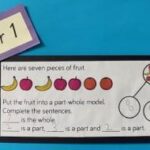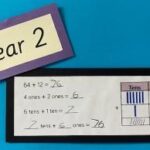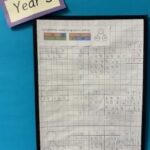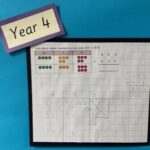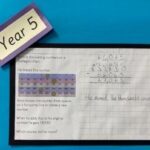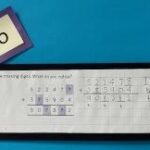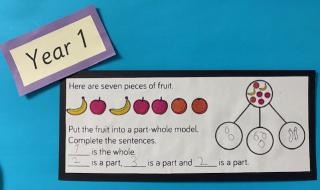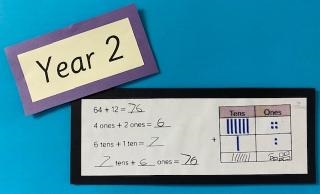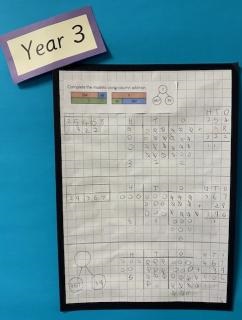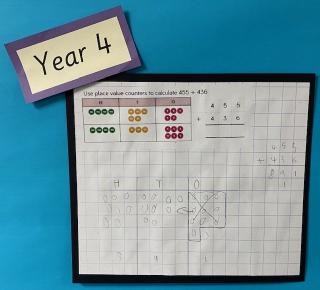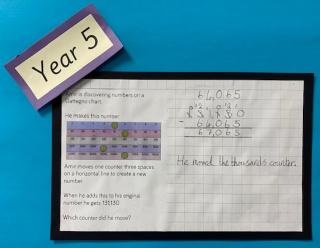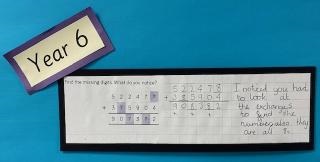Mathematics
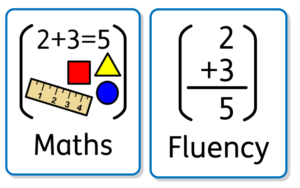
Subject Lead: Mrs Goldsworthy/Mr Riches
Contact Email: pennowethlowerks2@croftymat.org
Our maths curriculum intent
At Pennoweth School, we believe that Mathematics is not just about memorizing facts and figures, but about developing a deep understanding of the subject. Our goal is to help children become mathematical thinkers who can reason, apply their knowledge to other areas of the curriculum, and become confident and curious learners. To achieve this, we use the Mastery approach to teaching Mathematics, which focuses on five key principles: Coherence, Representation and Structure, Mathematical Thinking, Fluency, and Variation.
By breaking down complex concepts into small steps and embedding key knowledge in each strand of Maths, we help children develop a solid foundation in the subject. This enables them to understand decimals, fractions, percentages, and other mathematical concepts in a variety of ways, using concrete, pictorial, and abstract methods.
Our students enjoy learning Maths at Pennoweth School and benefit from the consistency of the White Rose materials used in each year group. We also provide daily fluency practice and use familiar classroom resources and vocabulary to make learning more engaging.
For more information on Mastery Maths, please click on the link below.
DNA
The culture of our DNA at Pennoweth also aids and supports the teaching of Mathematics.
The structure of the lessons and the continuity of the concrete, pictorial and abstract presentations throughout the year groups ensure our children always feel safe and comfortable. They are encouraged to make mistakes and helped to learn from them, not see them as failures. The small steps of progression mean that every child is included in every lesson, and the help and support they receive from their adults and peers help them to feel loved. They are able to be responsible for their own learning, use manipulatives to work independently and seek counsel when they need it to help them progress further. The children are engaged and motivated in their learning, they can absorb new knowledge in small steps and the greater depth thinking ensures that all children are sufficiently challenged. Finally, our children are ready. Ready to be independent, secure learners who can be resilient and apply their knowledge in different situations and contexts.
We have carefully considered the skills needed for children to become competent and confident mathematicians and have mapped maths across the school. Children will experience a wide variety of mathematical concepts, from real word problems they can solve using manipulatives to algebraic equations in Y6.
Click the link below to discover how your child’s knowledge and skills will be developed across the school:
Fluency in Mathematics
Mathematical fluency is taught to all children in a 15 minute additional session. In EYFS and KS1, this is taught through the Mastering Number scheme (see below). These sessions are designed to develop the children’s knowledge of number, focusing on the three areas of fluency:
Efficiency – this implies that children do not get bogged down in too many steps or lose track of the logic of the strategy. An efficient strategy is one that the student can carry out easily, keeping track of sub-problems and making use of intermediate results to solve the problem.
Accuracy – depends on several aspects of the problem-solving process, among them careful recording, knowledge of number facts and other important number relationships, and double-checking results.
Flexibility – requires the knowledge of more than one approach to solving a particular kind of problem, such as two-digit multiplication. Students need to be flexible in order to choose an appropriate strategy for the numbers involved, and also be able to use one method to solve a problem and another method to check the results.
So fluency demands more of students than memorising a single procedure – they need to understand why they are doing what they are doing and know when it is appropriate to use different methods.
Developing Number Fluency – What, Why and How (maths.org)
Mastering Number
The ‘Mastering Number’ scheme, implemented in both Early Years Foundation Stage (EYFS) and Key Stage 1 (KS1), is an innovative approach to mathematical education that places a strong emphasis on developing a deep and comprehensive understanding of fundamental numerical concepts. At the heart of this scheme is the use of Rekenreks, a versatile mathematical tool designed to enhance the learning experience for young students.
Through the ‘Mastering Number’ approach, students are encouraged to engage with Rekenreks and other hands-on manipulatives. These tools provide a tangible and visual representation of mathematical concepts, making abstract ideas more accessible and engaging for young learners. The scheme progresses incrementally, introducing foundational math skills such as subitising, addition, and subtraction in a way that aligns with each child’s developmental stage.
By incorporating Rekenreks into the ‘Mastering Number’ scheme, we ensure that children not only gain mathematical proficiency but also develop a strong conceptual grasp of numbers and number sense. This hands-on approach fosters critical thinking, problem-solving, and a lifelong love for mathematics, setting the stage for a successful mathematical journey throughout their educational years.
What sort of mathematical language will my child learn at Pennoweth?
What do Pennoweth’s children think about mathematics?
Comments from children in KS1
‘I like numbers, they are fun because they go all together. Like I know 2 and 2 make 4, so 2 and 3 make 5!’
‘Subitising is my favourite, I am really good at it!’
Comments from children in KS2
‘ Using maths whizz has really helped me in lessons, I feel so much more confident now’
‘ I love pushing myself to get onto the challenge, it makes me feel like I have really achieved if I can finish it before my friends have!’
Maths in the Early Years Foundation Stage
In EYFS, we believe that maths is all around us, waiting to be discovered and enjoyed! We’ve created a dynamic learning environment that fosters a love for numbers and problem-solving from an early age.
Why EYFS Maths Matters:
In nursery and reception classrooms, maths isn’t just about numbers and equations – it’s about curiosity and exploration. We know that young minds are naturally curious, and we channel that curiosity into exciting maths adventures.
Play-Based Learning:
Our approach to teaching maths involves a lot of play! We use games, puzzles, and hands-on activities to make learning fun and engaging. Children learn best when they’re having a great time, and our play-based methods ensure just that.
Connecting with White Rose:
White Rose provides us with a rich set of resources and a structured approach to teaching math concepts, ensuring that our students receive a solid foundation that feeds into what they do in KS1 and KS2.
Exploring Real-World Connections:
Maths isn’t just about textbooks; it’s everywhere! Our EYFS program helps children see the maths in their everyday lives – from counting toys to measuring ingredients for baking. We show them that maths is relevant and exciting.
Building Confidence and Skills:
Our nurturing environment fosters the development of essential maths skills like counting, shapes, patterns, and problem-solving. As children progress through our program, they gain the confidence to tackle more complex maths challenges.
Preparing for a Bright Future:
Early maths education sets the stage for future success. We believe that by igniting a passion for maths early on, we’re helping our students build a strong foundation for their academic journey.
Join us on this maths-filled adventure, where every day is a chance to explore, learn, and grow. We can’t wait to watch your child’s mathematical journey unfold!
-
Personalized Learning: Maths-Whizz tailors maths lessons to your child’s individual needs. It adapts to their current skill level, providing lessons and exercises that challenge and support them appropriately.
- Engaging Content: Your child will enjoy interactive lessons, games, and quizzes that make maths enjoyable. This approach can help reduce math anxiety and boost their confidence.
- Comprehensive Coverage: Maths-Whizz covers a wide range of maths topics, from the basics to more advanced concepts, ensuring your child gets a well-rounded math education.
-
Progress Monitoring: You can keep track of your child’s progress through detailed reports and insights provided by the program. This helps you understand their strengths and areas that might need more attention.
- Instant Feedback: Maths-Whizz offers instant feedback to your child, helping them learn from their mistakes and find the right solutions.
- Convenience: The program is accessible online, so your child can use it at home or school, on various devices like computers and tablets.
- Motivation: Maths-Whizz often includes rewards and achievements, motivating your child to stay engaged and work toward their math goals.
Maths-Whizz is a fantastic tool to support your child’s math learning journey. It can complement their classroom instruction and help build a strong foundation in mathematics, setting them up for success in school and beyond. We encourage you to explore this program and see how it can benefit your child’s math education.
